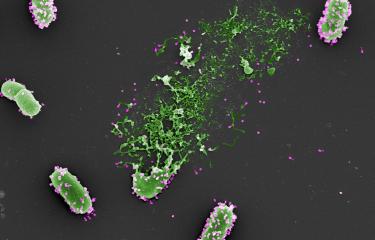Type 1 diabetes, multiple sclerosis, rheumatoid arthritis, systemic lupus erythematosus, vitiligo, Crohn's disease and Guillain-Barré syndrome – these seemingly different diseases all have one thing in common: they occur when a deregulation of the immune system causes it to “attack” the body that it is supposed to be protecting.
Question science - medicine, from La lettre de l’Institut Pasteur (#120 issue) to be published in May 2023
Our immune system can naturally recognize and act on our body's own components. This self-response enables antibody-producing B cells and cell-killing, inflammation-mediating T cells to target infected cells or cancer. Luckily our body develops immune tolerance to self-components. To protect us from healthy tissue attacks, lymphocytes with the highest self-response profile are counter-selected during development in the bone marrow or thymus, and then eliminated. At the same time, inhibitory mechanisms of inflammation exist to limit its duration and spread.
The three key factors of autoimmunity
Many factors can deregulate these mechanisms and reduce immune system tolerance to its own self. These may include sex hormones: 8 in 10 people with an autoimmune disease are female. Genetic makeup is also important, with many of these conditions, such as type 1 diabetes, running in families. Lastly the environment – exposure to germs, chemicals, UV rays, tobacco, etc. – also plays a major role.
"Autoimmune" diseases currently affect around 5 million people in France and are the third most common category of disease in industrialized countries in terms of morbidity and mortality, after cancer and heart disease. There is currently no cure although there are treatments such as immunotherapies to slow down progression or ease symptoms. Each autoimmune disease requires specific treatment.
Read this article in the #120 issue of La lettre de l'Institut Pasteur, to be published in French in May 2023 (PDF version on this website).
This issue will be dedicated to new cancer immunotherapies, which mobilize the body's immune response to fight the tumor.




